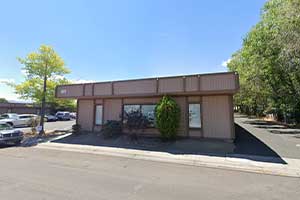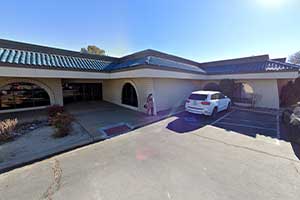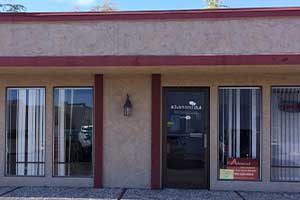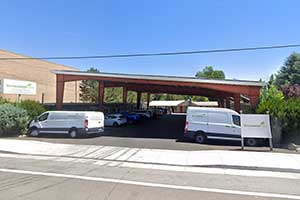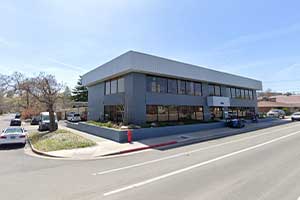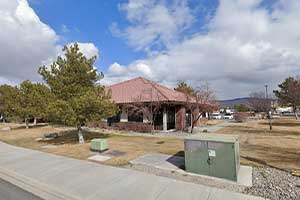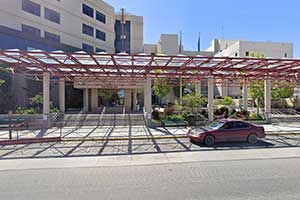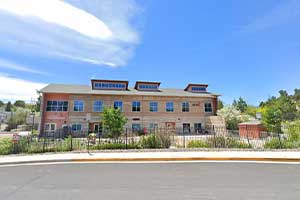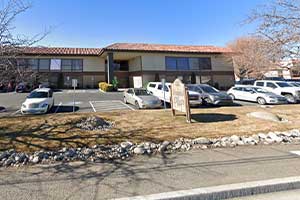Skip To Rehab Listing
Alcohol and Drug Rehabilitation Facility Settings and Modalities
Numerous addictive drugs are readily attainable within the Reno region, like: heroin, meth, cocaine, and marijuana.
The reasons that individuals begin using addictive substances differs. Often, what those who end up addicted to alcohol and drugs have in common is an inability to beat their reliance upon these addictive substances without proper treatment.
For these individuals, Reno provides several different treatment programs so clients can search out one in a convenient location such as: outpatient substance abuse treatment services, outpatient detox facilities, long term drug and alcohol rehab facilities, short term drug treatment, inpatient drug addiction treatment.
These treatment programs utilize a range of methods, ranging from long-established approaches to recently developed methods, to deliver clients with an effective evidence-based path to lasting recovery. These approaches can include: couple/family therapy, cognitive/behavior therapy, rational emotive behavioral therapy, trauma therapy, contingency management/motivational incentive, group therapy.
Special Programs for Addiction Recovery
As alcohol and drug abuse impacts every individual differently, nearby rehabilitation programs provide special services such as persons who have experienced sexual abuse, clients referred from the court/judicial system, persons with eating disorders, residential beds for client's children, legal advocacy, seniors or older adults to help match a client's treatment to their individual needs.
Those facing drug and alcohol abuse can receive direction in choosing the right treatment for their needs by reaching out to any of the area's rehab centers.
Drug Rehab Center Payment Options
Funding should not be a hurdle to rehabilitation for people struggling with addiction. That is the reason nearby programs offer multiple payment alternatives, including private insurance, cash or self-payment, sliding fee scale, medicaid, medicare, state education funds, access to recovery (atr) voucher, to help patients' individual economic situation.
Those who are looking for alcohol and drug rehab can find a facility, rehab, resource, and payment option within the Reno area that will help them to overcome their alcohol and drug addiction and return to the life they want to lead.
Commonly Asked Questions about Addiction and Treatment
Is there free help for drug and alcohol addiction?
Yes, there is free help available for individuals struggling with drug and alcohol addiction. Numerous resources and support systems exist to provide assistance at no cost. Some of these options include:
National Helplines: Many countries have dedicated helplines for substance abuse and mental health issues. In the United States, the SAMHSA National Helpline (1-800-662-HELP) offers free, confidential, 24/7 assistance in English and Spanish.
Peer Support Groups: Local support groups, such as Alcoholics Anonymous (AA) or Narcotics Anonymous (NA), provide free peer-to-peer support, guidance, and resources for individuals facing addiction. Meetings can be found in various locations and are open to all.
Non-profit and Faith-based Organizations: Some non-profit and faith-based organizations offer free addiction support services, including counseling, group therapy, and recovery programs. Local community centers, churches, mosques, and synagogues may have information about available resources in your area.
Online Support Communities: Several websites and online forums offer free support and resources for individuals in recovery from addiction. These virtual communities can provide valuable information, advice, and encouragement from peers facing similar challenges.
State-Funded Treatment Programs: In many regions, state-funded addiction treatment programs provide free or low-cost services to eligible residents. Contact your local health department or substance abuse agency for information on available programs in your area.
Public Libraries: Local libraries often have free resources related to addiction, recovery, and mental health, including books, DVDs, and pamphlets. Librarians can also help you locate additional resources and services within your community.
How do addictive drugs influence behavior?
Addictive drugs influence behavior by interacting with the brain's reward system. This system is responsible for driving pleasurable feelings and motivating behaviors essential to human survival, such as eating and socializing. Addictive substances can hijack this system, leading to changes in behavior and brain function.
Here's a simplified explanation of how this works:
Alteration of Neurotransmitter Activity: Addictive substances often increase the levels of certain neurotransmitters, chemicals that transmit signals between nerve cells in the brain. One key neurotransmitter affected by many drugs is dopamine, which is closely associated with feelings of pleasure and reward.
Overstimulation of the Reward System: By increasing dopamine levels, addictive drugs overstimulate the reward system, often creating a sense of euphoria. This intense pleasure can lead individuals to repeat the drug use to recapture this feeling.
Development of Tolerance and Dependence: Over time, the brain adapts to the increased dopamine levels by producing less dopamine or reducing the number of receptors that can receive signals. As a result, the drug's effects are lessened, a phenomenon known as tolerance. This can lead users to take increasingly larger doses of the drug to achieve the same dopamine high. This cycle can lead to dependence, where the brain relies on the drug to function normally.
Withdrawal and Cravings: When the drug is not taken, withdrawal symptoms can occur as the brain attempts to rebalance itself. These can include negative emotions like anxiety and depression, physical symptoms like nausea or restlessness, and intense cravings for the drug.
Compulsive Drug-seeking Behavior: As the cycle of tolerance, dependence, withdrawal, and cravings continues, individuals may engage in compulsive drug-seeking behavior, even when faced with negative health, social, or legal consequences. This is a key characteristic of addiction.
Impairment in Decision-making and Self-control: Long-term drug use can also cause changes to other areas of the brain that impair decision-making, self-control, judgment, learning, and memory, further fueling the cycle of addiction.
What is the 12 step method for treating addiction?
"The 12-step method for treating addiction is a structured, peer-based approach that originated with Alcoholics Anonymous (AA) in the 1930s. Since then, it has been adapted for various other substance use disorders and behavioral addictions, including Narcotics Anonymous (NA), Gamblers Anonymous (GA), and Overeaters Anonymous (OA), among others. The method is based on a set of guiding principles, known as the 12 steps, that outline a path to recovery, personal growth, and spiritual development.
The 12 steps of the method are as follows:
- Admitting powerlessness over the addiction and recognizing that one's life has become unmanageable.
- Believing that a higher power (interpreted by each individual according to their beliefs) can restore sanity and provide support in recovery.
- Deciding to turn one's will and life over to the care of the higher power.
- Conducting a thorough and honest moral inventory of oneself.
- Admitting to oneself, the higher power, and another person the exact nature of one's wrongs and shortcomings.
- Being ready to have the higher power remove these defects of character.
- Humbly asking the higher power to remove one's shortcomings.
- Making a list of all the people harmed by one's addiction and being willing to make amends to them.
- Making direct amends to those harmed, whenever possible, except when doing so would cause harm to them or others.
- Continuing to take personal inventory and promptly admitting when one is wrong.
- Seeking to improve one's conscious contact with the higher power through prayer and meditation, asking for knowledge of the higher power's will and the strength to carry it out.
- Having experienced a spiritual awakening as a result of these steps, carrying the message to others struggling with addiction and practicing these principles in all aspects of life.
The 12-step method emphasizes the importance of peer support, mutual aid, and the sharing of personal experiences as a means of overcoming addiction. Participants typically attend regular meetings, where they share their stories, listen to others, and work through the steps at their own pace. Many 12-step programs also encourage members to find a sponsor, an experienced member who has worked through the steps and can provide guidance, support, and accountability during the recovery process."
